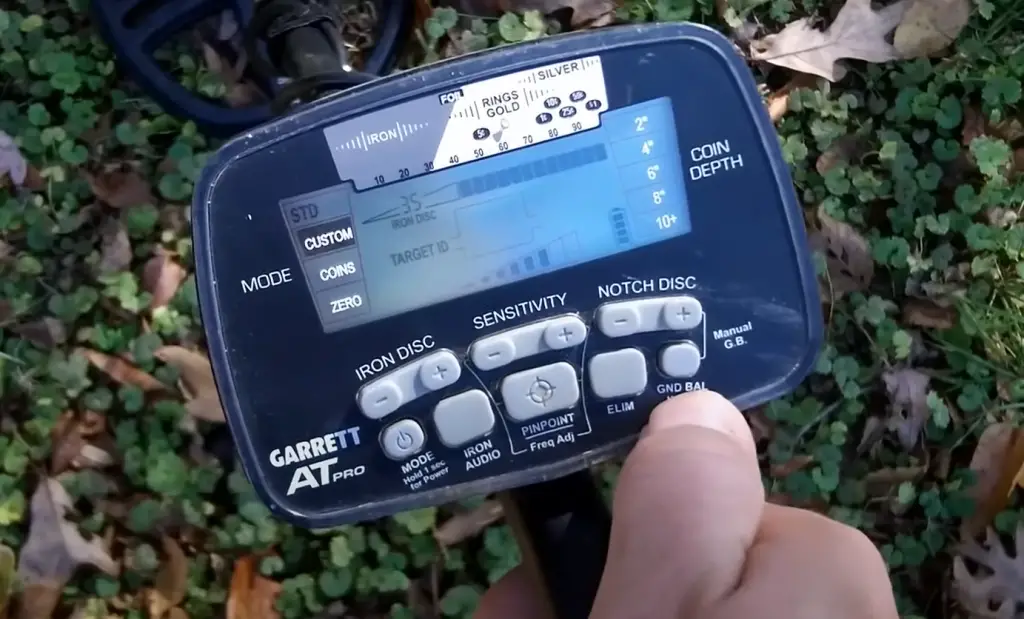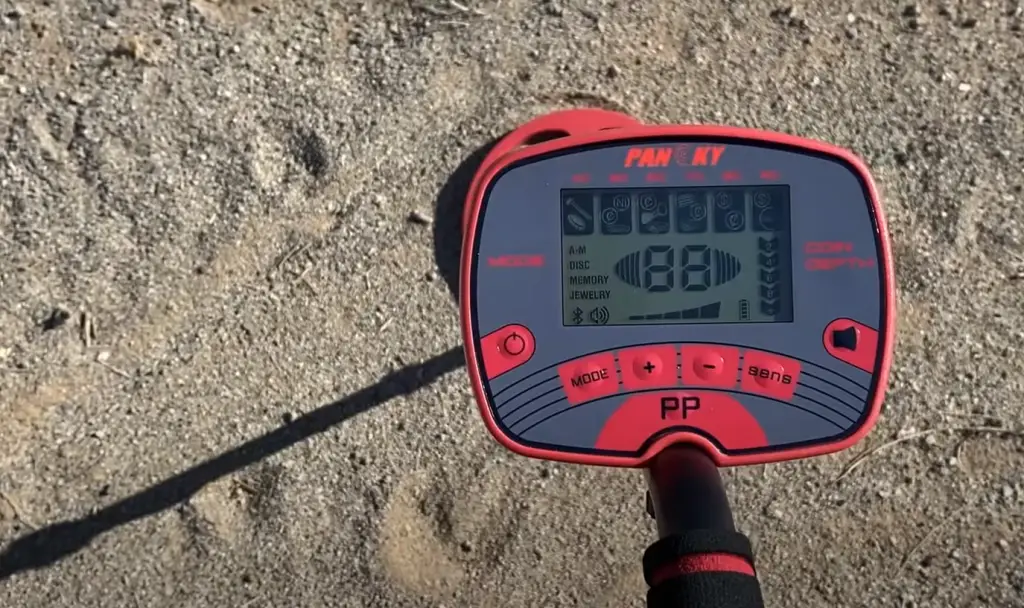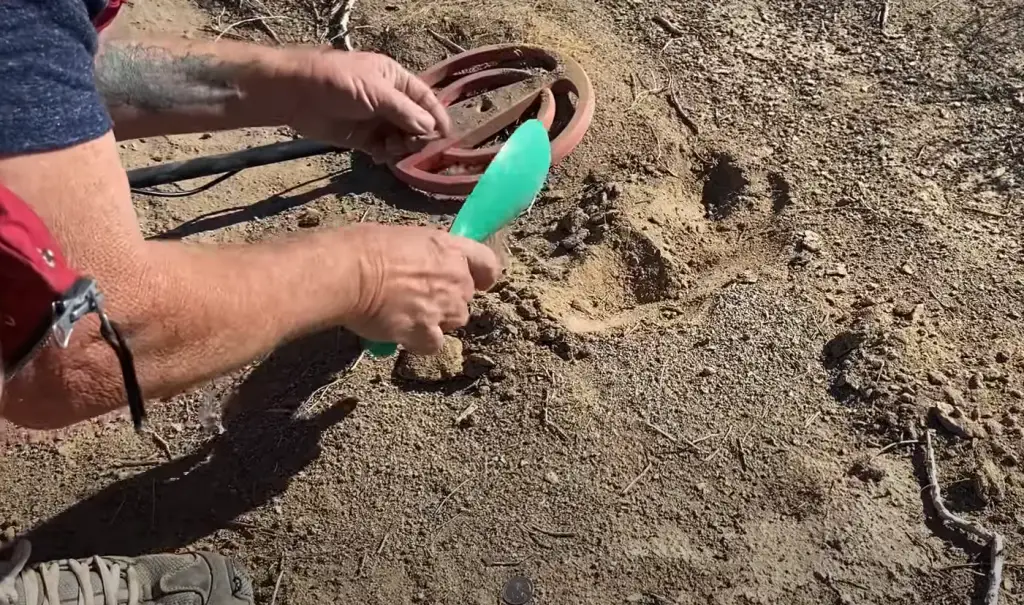Does Stainless Steel Set off Metal Detectors?
Are you curious if your stainless steel water bottle or other metallic object will raise any red flags at airport security? The answer is complicated and depends on a few factors. To ensure you have all the information necessary to make an informed decision on stainless steel and metal detectors, read ahead.
What Is A Metal Detector?
Utilizing advanced electronics, a metal detector can detect the presence of any metallic element in close vicinity. The device operates by emitting electromagnetic waves in a circular pattern, which then reflect off any metallic objects within range and return the signal to the detector.

Metal detectors are commonly used in security, construction, archeology, and hobbyist settings to locate potentially dangerous or valuable objects.
Does Stainless Steel Set Off Metal Detectors?
Absolutely, stainless steel will usually trigger metal detectors. The presence of iron, in addition to other metals such as chromium and nickel, is the reason that stainless steel is so resilient. Iron has an incredibly strong magnetic force which makes it detectable by metal detectors.
Nonetheless, not all grades of stainless steel are picked up by a metal detector; certain varieties are more impervious to detection than others. For example, some grades of stainless steel may contain more nickel or chromium than iron, which makes them less responsive to detection by a metal detector.
If stainless steel is thicker and more compact, it’s likely that a metal detector will detect it. If you plan on passing through a security checkpoint with stainless steel items, it’s best to check with the airport or other security provider in advance to ensure that your item won’t set off their detectors.
For those who work with stainless steel on a regular basis, there are special tools available that can help identify which type of stainless steel you are dealing with and if it is likely to be detected by metal detectors. For example, a handheld device called an eddy current probe is designed specifically for this purpose. It uses powerful magnetism to determine the magnetic properties of various metals and alloys, such as stainless steel. This allows users to quickly assess whether their material will be detected or not. [1]
What Metals Can Be Detected By A Metal Detector?
Metal detectors are invaluable tools used to identify metallic materials and objects, making them essential for a variety of purposes. Metal detectors are designed to sense a variety of metallic substances, including the ferromagnetic components found in iron and steel, as well as non-ferrous metals like aluminum, brass, copper, lead nickel and titanium. Some detectors have the ability to distinguish between different types of metals. Some metal detectors possess the capability to locate even valuable metals such as gold and silver.

Compared to other metals, stainless steel is composed of non-magnetic alloys and therefore won’t trigger the alerts usually given by metal detectors. Nevertheless, some powerful metal detectors may still be able to detect the small amounts of iron-containing material found in stainless steel and other alloyed materials.
If the metal detector is of superior sensitivity, it can detect even subtle amounts of ferrous material in stainless steel or other alloyed materials. [2]Metals That Can’t Be Detected By Metal Detectors
Some metals, such as aluminum, copper, lead and gold are not magnetic and therefore cannot be detected by most metal detectors. However, some specialized metal detectors have the ability to detect non-ferrous metals like these. It is important to remember that different metals react differently to different frequencies of sound waves generated by a metal detector; this means that certain types of metals may be more difficult to detect than others.
What is the Difference Between Steel and Stainless Steel?
Steel is an alloy consisting of iron and carbon, while stainless steel incorporates these elements as well as at least 10.5% chromium for enhanced strength and durability. Chromium gives steel its corrosion-resistant properties by forming a chromium oxide layer on the surface of the metal that prevents further oxidation. Thanks to its higher non-ferrous metal composition, stainless steel is more resistant to rust than other steels and much likelier to be detected by metal detectors. Stainless steel is distinguishable by metal detectors due to its content of nickel.

However, the amount of these non-ferrous metals present in stainless steel depends on the composition of the particular grade or type being used. Different grades of metal can vary drastically in their detectability, ranging from being almost undetectable by a standard metal detector to being very noticeable. Depending on the level of sensitivity and accuracy of your device, these results may differ significantly.
Whether or not stainless steel sets off metal detectors also depends on the strength of the magnetism and frequency being used. Generally speaking, higher frequencies are more likely to detect stainless steel due to its non-ferrous metals content. Therefore, if using a handheld magnetic detector that is tuned for higher frequencies, it is more likely that stainless steel will set it off. On the other hand, if using a traditional walk-through metal detector with lower frequencies and weaker magnets, stainless steel may not set it off at all. [3]
Do Body Piercings Set Off Metal Detectors?
When it comes to body piercings, a common question is whether or not they will set off metal detectors. The short answer is that it depends on the type of piercing used.
Some body piercings that are made from metals like titanium and niobium also tend to be unlikely to trigger alarms in metal detectors as these materials are non-ferrous and lightweight.However, many types of body jewelry contain trace amounts of nickel which can sometimes set off metal detectors so it’s best to check with the TSA before attempting to pass through an airport checkpoint. It’s also important to note that some body piercings may contain magnetic materials, like neodymium magnets in captive bead rings, which can cause metal detectors to sound an alarm. In these cases, it is best to remove the piercing before going through security as this should prevent any issues with the metal detector.
Will an Artificial Joint Set Off a Metal Detector?
Since artificial joints are made of metal, the answer is yes. Most metal detectors will pick up on the metal components of an artificial joint, so it is important to alert security personnel at airports and other locations when going through a metal detector with an artificial joint in place. Security personnel may ask for additional identification or for further inspection of the artificial joint before allowing you to pass through.
It is important to inform security personnel that your prosthetic has been cleared by medical professionals and is safe to pass through a metal detector without issue. By doing this, you can help ensure a smooth screening process for yourself and others.

Finally, it is worth noting that not all metal detectors will detect an artificial joint; some use specialized technology designed specifically to detect non-ferrous metals, such as those used in some prosthetics. If you are unsure whether your metal detector will pick up on the artificial joint, it is best to check with the manufacturer before attempting to pass through security. [4]
How Metal Detectors Work
Metal detectors work by sending out electromagnetic fields, which interact with metal objects. When the magnetic field of an object is disturbed, it gives off a signal that is detected and registered by the device. Metal detectors can be used to detect various types of metals, including steel.
When stainless steel is placed in the path of a metal detector’s electromagnetic pulse, it causes slight disturbances in the field. These disturbances are usually small enough not to cause alarm or trigger an alert from the machine, meaning that most stainless steel items should not set off metal detectors. However, there are some exceptions – certain grades and types of stainless steel may still generate a detectable signal when put through a metal detector.
Therefore, while stainless steel generally should not set off a metal detector, it is important to be aware of the type and grade of stainless steel when going through security checkpoints. If the item in question is particularly dense or contains other metals, it may still cause an alarm to sound. It is also wise to check with your local airport or government facility before attempting to bring stainless steel items through a metal detector as some places may have specific rules about what types of items are allowed.
Valuable Stainless Steel Targets You Can Find with a Metal Detector
Stainless steel flatware is a common target for metal detecting enthusiasts. Forks, knives, spoons and other utensils are often buried near campgrounds or lost in fields.
A variety of old coins may be found in areas where history has been made—like battlefields or old homesteads. Coins can range from pennies to gold pieces worth hundreds of dollars. Many coins are made from stainless steel, and they can be identified by their size and shape.
Jewelry is another target for metal detecting enthusiasts. Rings, bracelets, necklaces and pendants are often made of precious metals like gold or silver, but they may also be crafted with stainless steel. These items may be worth hundreds or even thousands of dollars if they contain rare stones or gems.

Older tools can sometimes be detected as well. Hand drills, screwdrivers and other implements were commonly made with stainless steel in the 19th century and earlier—before rustproof coatings became commonplace. Such finds can bring good money to collectors of antique tools.
Stainless steel relics may be found in many places. A metal detector set to detect ferrous metals can easily pick up such items, and the value of what you find may surprise you. So don’t be afraid to take your metal detector out and see what kind of treasures await. You never know what you might uncover! [5]
FAQ
Can stainless steel be detected by metal detectors?
Yes, stainless steel can be detected by metal detectors. The highest frequency of a typical metal detector is between 1 and 100 kHz, and stainless steel has a permeability that allows it to be detected easily. Additionally, many different alloys of stainless steel contain ferromagnetic elements such as nickel or cobalt which can increase their ability to be detected even further. Therefore, any type of stainless steel should set off a metal detector in the right conditions.
Does the size of the piece of stainless steel affect its ability to be detected?
Yes, larger pieces of stainless steel have an easier time setting off metal detectors due to their increased surface area and mass. Smaller pieces may require higher frequencies than those offered by most standard metal detectors in order to be detected. Additionally, the amount of ferromagnetic elements contained within the stainless steel can also affect its ability to be detected.
Can other metals be detected by a metal detector?
Yes, many different types of metals can be detected by a standard metal detector. Commonly found metals such as iron, aluminum, copper and brass all have permeabilities that allow them to be easily detected in most situations. Other non-ferrous metals such as gold or silver may require specialized equipment in order to be accurately identified by a metal detector.
Are there any instances where stainless steel won’t set off a metal detector?
Yes, depending on the type and size of the object being tested as well as any additional shielding or interference, it is possible for stainless steel to not be detected by a metal detector. For example, if the object is small enough or has an insufficient amount of ferromagnetic components, a metal detector may not pick up on its presence. Additionally, certain materials such as plastic, wood or rubber can interfere with the signal and cause it to go undetected.
How can you tell real stainless steel?
In order to identify real stainless steel, it is important to look out for certain characteristics. Authentic stainless steel should have a glossy surface and be free of any corrosion or rust. Additionally, stainless steel should not easily scratch or dent when subjected to force. Furthermore, if you wish to test the material further, a metal detector can be used in order to verify its composition and ensure that it is indeed made of stainless steel.
Useful Video:Garrett AT Pro Metal Detector Review & Depth Test
Conclusion
In conclusion, stainless steel does set off metal detectors and will trigger a response when it comes into contact with one. Depending on the type of stainless steel and the sensitivity of the metal detector, this response may vary. Different items, such as coins or jewelry, made from stainless steel can produce different levels of detection depending on their composition, size and shape. It is important to be aware that stainless steel items can set off metal detectors and should be taken into consideration when entering areas where these devices are in use. If you are unsure about whether or not an item contains stainless steel, do not take it with you into restricted areas for safety reasons. Knowing what triggers a metal detector response can help ensure that everyone has a safe experience in secure environments.
References:
- https://www.mgsrefining.com/blog/2021/10/13/what-metals-cannot-be-detected-by-a-metal-detector/
- https://stainlesssteelguide.com/does-stainless-steel-set-off-metal-detectors/
- https://cfenjewelry.com/does-stainless-steel-jewelry-set-off-metal-detectors/
- https://detectingschool.com/do-metal-detectors-detect-stainless-steel/
- https://www.afashionblog.com/will-jewelry-set-off-a-metal-detector-at-the-airport/






